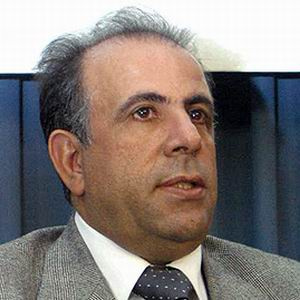No Confidence Building before Iran-US Détente

Yousef Molaei, international law expert and University of Tehran professor, believes that Iran’s invitation for other countries to visit its nuclear facilities is a confidence building measure. However, he believes that no confidence building will take place until Iran and US begin a détente:
IRD: Dr. Molaei, in your opinion what has encouraged Iran to invite IAEA members to visit its nuclear facilities?
YM: Iran aims to build confidence and show more transparency in its peaceful nuclear program as all IAEA and UN Security Council resolutions have demanded. Nonetheless, the UN has never been clear on what it regards as a confidence building measure. I think Iran’s initiative is per se a positive signal for other countries.
IRD: What is exactly meant by ‘transparency’ and ‘confidence building’ as referred to in the resolutions?
YM: There is no legal definition of these terms, neither in international relations nor in domestic affairs. Confidence building has two components: the trust-forging party and the trusting party. The West’s criteria on this issue may be different from ours, that is, different systems of weighing actions lead to different means and it is not clear what should be done to gain trust. It can be compared to financial or family problems in Iranian society: you may end the row with a simple apology and kiss on the cheeks, or you may follow other ways. There is no one-size-fits-all solution.
IRD: How about halting uranium enrichment? The West has always favored this as a confidence-building measure.
YM: Uranium enrichment is an entitlement according to the Non-Proliferation Treaty (NPT) and no country has been banned from exploiting its technology. So legally speaking, there should be no objections to that. The West is suspicious of Iran’s nuclear program, so it is trying to restrict Iran’s access to advanced nuclear technologies. Iran’s nuclear dossier was stripped of its legal facet when it was handed by the IAEA to the Security Council and was linked to international peace and security. Now Iran has to solve the issue with the P5+1 [five UNSC permanent members plus Germany], self-proclaimed UNSC representatives.
The P5+1 has demanded that Iran carry out different confidence building measures: from signing the Additional Protocol to the Modality Plan (a set of disputes and concerns clarified by Iran within a limited schedule). But the West still believes in more confidence building measures by Iran, including a moratorium on uranium enrichment until the West and the IAEA become certain of the nature of Iran’s nuclear program.
IRD: Do you think Iran’s invitation for IAEA members to visit its nuclear facilities can gain Western countries’ trust?
YM: As I said, the confidence building mechanism is not transparently defined. I think Iran’s move has no adverse impact. Conversely, it proves Iran’s effort to ensure transparency in its nuclear program and can create a new atmosphere. Complex diplomatic problems will be solved with initial small steps like this, considering the misunderstandings that exist between the two sides at the moment.
IRD: The US has called it a “magical, mystery tour”, to quote the words of US State Department Spokesman Philip Crowley. And it has not been invited. Why has Washington reacted in this way?
YM: The gap between Iran and the P5+1 is quite wide. The perceptions are really dark. So their understanding of the same issue may be quite different. I don’t think there is any chance for confidence building as long as this is the situation. Any positive move by either side is interpreted adversely, and this just adds to animosities. The problem is basically rooted in Iran’s different attitude toward the global order. Tehran refuses to comply with the US-imposed order, and is trying to undermine it.
As former IAEA president Mohammad ElBaradei mentioned a few years ago, the nuclear issue won’t come to a conclusion unless Iran and the US decide to solve their bilateral problems. That is why many believe in direct talks between Tehran and Washington as the ultimate solution to the standoff. It is all too obvious: the nuclear dossier won’t be closed unless Iranians and Americans come to an agreement.
IRD: To what extent do you think mediation of other political entities, such as the EU or countries like Turkey, can be helpful?
YM: The problem is neither of the parties fully trust any mediators suggested by the other side. The US has given room to other P5+1 countries to put an end to the standoff. These countries are regarded as partisan by the Islamic Republic, since they have voted against its nuclear program in the UNSC. Tehran, on the other hand, has proposed members of the Non-Aligned Movement (NAM), which Washington does not trust.

